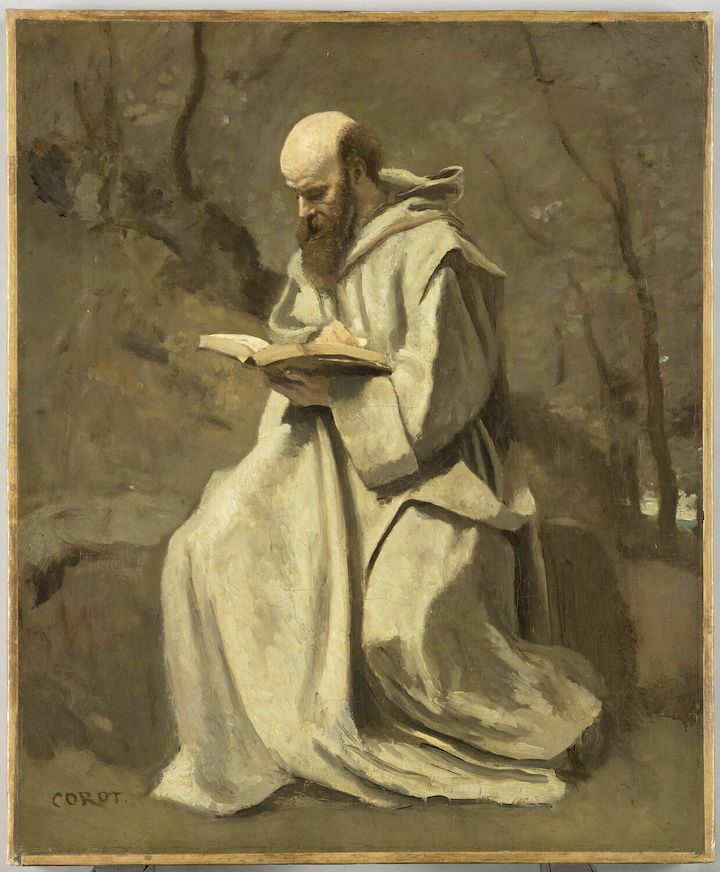Many clergy, religious, and laity pray the Divine Office every day. But even more should – or perhaps would – if they knew more about it. The Divine Office is a collection of psalms, Scripture readings, readings from various times and places in the tradition, and prayers that one prays several times a day. The actual selection of these texts is coordinated with Church’s Liturgical Calendar. The word “office” in this context comes from the Latin for duty. The Office is a required participation in the daily prayer of the Church, for ordained and religious.
Once one has been praying the Office routinely for a while it becomes apparent that the practice is certainly prayer, but it is also a rehearsal of the family history. I am talking about the religious family that started with Abraham’s act of faith all the way through to recent history. The Office of Readings includes texts, for example, that are quite ancient as well as from the Second Vatican Council.
With all of the ancient homilies and writings, what the Church has done is to make sure that we draw daily on the tradition of the Church “whose wealth is poured into the practice and life of the believing and praying Church.” (Vatican II) The tradition of the Church has a special place because it is “through the same tradition that the Church’s full canon of the sacred books is known, and the sacred writings themselves are more profoundly understood and unceasingly made active in her.”
This is all in addition to experiencing the wonders of the Scriptures themselves. So, in fact, in the Divine Office, we are experiencing the “close connection and communication between sacred tradition and Sacred Scripture.” (Vatican II) We face “both of them, flowing from the same divine wellspring.”

Put in different terms, each time we settle down with the Breviary, we are face to face with what has been preserved by the Church, through the ages, for our salvation. We join the People of God in receiving Divine Revelation. We praise Almighty God, celebrate his Church, and then, the intercessions add some shape to our state of mind going into our day. They even focus our minds on some trenchant current issues.
But there is so much more: if one looks at the psalms for the Office of Readings for The Solemnity of the Ascension, they start with Psalm 68. Besides the adoration of God, there is the awe of God who “rides above the clouds.” The psalmist is recognizing how different God is from us. This is a caution against taking him for granted or imagining that he is “manageable.” He becomes more awful still: “like wax that melts before the fire so the wicked shall perish at the presence of the God.” Wickedness and sin are part of the conversation with God.
The mention of “those who hate God” takes us further into our own self-reflection. The next line is about the “just.” The playing field is gaining some detail now. The whole of life is experienced between the hatred of God and the participation in God’s justice. This is strong stuff especially if one has just woken up and staggered into the house chapel.
Further on, the inspired psalmist lists the features of God’s justice: he is “Father of the orphan”; “for the lonely a home”; “he leads prisoners forth into freedom”. The psalmist is reminding us that such things as this are the features of the just life for those who claim to follow Him. Right from ancient times, these were the signs of the faithful human being – caring in concrete ways for one’s fellow human beings as one is drawn into the justice and therefore the life of God. We do what he does.
And of course, there is an allusion to those who rebel against his justice: “they must dwell in a parched land.” Alongside the adoration of the God who does these things, is the reminder of what a just life has to be. Then, too, there is the instruction – we learn as we pray – on what justice must be like in the lawcourts and in the assemblies that make the law.
Further, alongside celebrating God and his faithful ones, there is rejoicing in acknowledging the power of God: “he rides on the clouds”; “the earth trembles”; “the heavens melt.” Lastly the psalmist recalls the good things that God has already done: “he poured down a generous rain”; “he gave his people new life.”
The mentioning of rain is important here because it triggers memories of the People of God being given a new land that became their “home.” This was a place “prepared in your goodness for the poor.” The image of the land is a concrete embodiment of living as the People of God. This is not the invisible Church as some would have it. For us too, our faith gives us something solid to stand on. Solid like land.
Such a psalm emboldens us as we turn to get on with our day.
*Image: Monk in White, Seated, Reading (Moine blanc, assis, lisant) by Jean-Baptiste Camille Corot, c. 1860 [Louvre, Paris]















